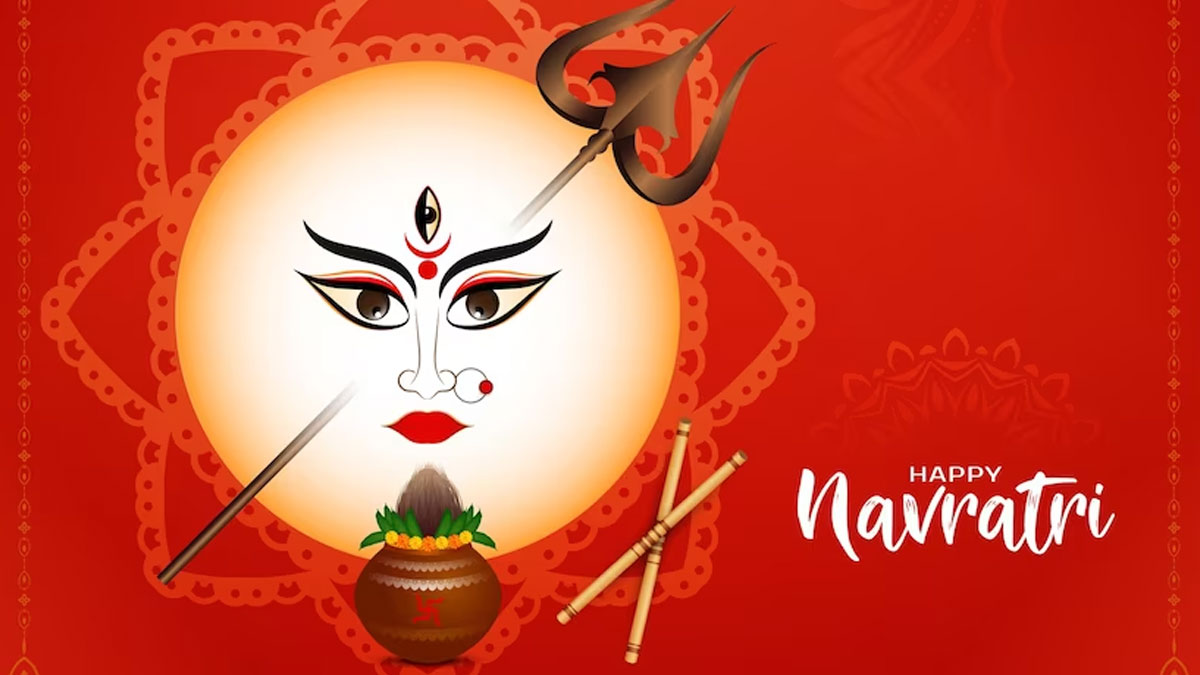
Navratri, the nine-day Hindu festival has started with vigour across the country with many devotees fasting during this period. During this time, many people choose to abstain from certain foods and follow a restricted diet. While this dietary practice is deeply rooted in tradition and spirituality, it's essential to maintain a balanced and healthy diet during this period. Low-fat foods can be a good choice for this fasting, as they provide essential nutrients without adding unnecessary calories. We spoke to our expert Shradha Singh, Consultant Dietitian, Regency Hospital, who listed low-fat foods that you should include in Navratri fasting.
Table of Content:-
Low Fat Foods For Navratri Fasting

Fruits and Vegetables
These should be the cornerstone of any fasting diet. Singh said, “Fruits like apples, bananas, and oranges are not only low in fat but also rich in vitamins and minerals. Similarly, vegetables like spinach, cucumber, and tomatoes are excellent choices. They provide fibre, which helps in digestion and keeps you full.”
Low-Fat Dairy Products
Singh said, “If dairy is part of your fasting diet, opt for low-fat or fat-free versions of yoghurt and milk. These are excellent sources of calcium other than dairy, which are important for maintaining bone health and overall well-being.”
Nuts and Seeds
You can also consume nuts and seeds like almonds, walnuts, and chia seeds while fasting. Singh added, “While nuts and seeds are calorie-dense, they are also rich in healthy fats, protein, and essential nutrients. In moderation, they can be included in your fasting diet.”
Also Read: Navratri Fasting Foods: Expert Lists Foods To Eat And Avoid
Buckwheat (Kuttu)
Buckwheat flour is a popular choice during Navratri fasting. It's naturally gluten-free and can be used to make dishes like buckwheat crepes (kuttu ke cheele). Buckwheat is low in fat and a good source of dietary fibre and protein. According to Food Science and Nutrition, the healing potential of buckwheat grain is amplified by the presence of bioactive compounds, making it more effective in addressing health-related issues.
Amaranth (Rajgira)
Amaranth seeds are another great option for fasting. Singh added, “They are high in protein, which can help keep you feeling full and satisfied. Amaranth can be used to make porridge or added to soups and stews.”
Potatoes
Singh noted, “While potatoes are often considered a high-carb food, they are naturally low in fat. However, it's important to prepare them in a healthy way, such as by boiling or roasting, and not deep frying them.”
Barnyard Millet (Samak Rice)
Another one to make it to the list is barnyard millet. Singh said, “This grain is low in fat and is a good source of energy. You can make dishes like pulao or kheer with it.”
Also Read: Navratri Diet Tips For Pregnant Women: Do’s And Don’ts
Sago (Sabudana)
Sago is a starchy food often used during Navratri fasting. Singh added, “It's low in fat but high in carbohydrates. Make sure to prepare it in a healthy way, such as by making sabudana khichdi. However, make sure it is not given to diabetic patients.” She also said that fasting is not allowed for diabetic patients.
Homemade Sweets
If you have a sweet tooth, consider making your own sweets using low-fat ingredients. For example, you can prepare sweets with mashed bananas or dates for natural sweetness.
Also ead: Navratri Special: 5 Traditional Yet Powerful Fasting Foods for Overall Health
Message From The Expert
Singh noted, “It's important to remember that while these low-fat foods are suitable for Navratri fasting, the overall balance and variety of your diet are crucial. Ensure that you get a mix of macronutrients (carbohydrates, protein, and healthy fats) to meet your nutritional needs. Also, consult with a healthcare professional or nutritionist to tailor your fasting diet to your specific health goals and dietary restrictions.”
Bottomline
Singh concluded, “Navratri fasting can be a spiritually fulfilling experience, but it should not compromise your health. Choosing low-fat foods, along with a variety of fruits, vegetables, and other nutrient-rich ingredients, can help you maintain a balanced and healthy diet during this period. Always listen to your body and make choices that align with your dietary preferences and requirements, and consider seeking professional guidance for a personalised fasting plan.”
[Disclaimer: This article contains information provided by a registered healthcare professional and is for informational purposes only. Hence, we advise you to consult your expert for a diet plan tailored to your body type.]
Also watch this video
How we keep this article up to date:
We work with experts and keep a close eye on the latest in health and wellness. Whenever there is a new research or helpful information, we update our articles with accurate and useful advice.
Current Version
Oct 16, 2023 11:28 IST
Published By : Sushmita Sharma
